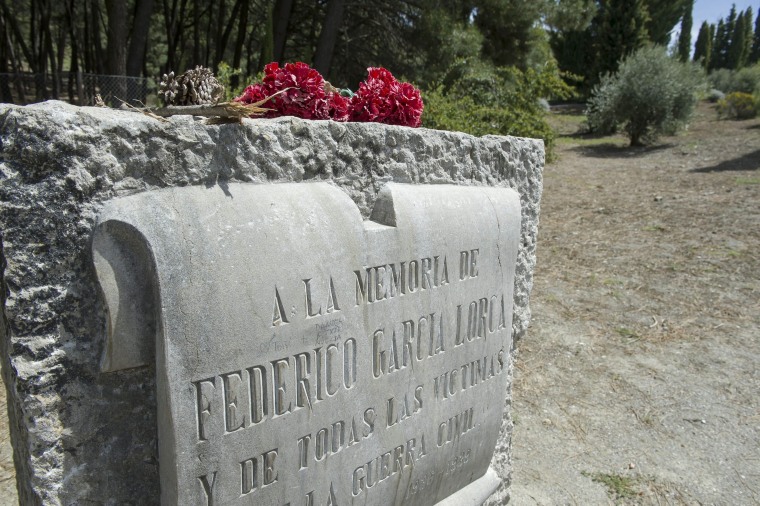“A dead man in Spain is more alive than a dead man anywhere in the world,” wrote the late Spanish poet and playwright Federico García Lorca, whose enduring work is still studied and loved across continents. One hundred and seventeen years after his birth on June 5th, 1898, Lorca has become the face of the Spanish government, appearing on education and tourism logos—though paradoxically, he continues as a counterculture icon for political dissidents, exiles and especially the LGBTQ community worldwide.
In 1936, just one month after the Spanish Civil War broke out, right wing militia and riot police surrounded the house in Granada where Lorca was hiding. A local police report dated almost three decades later says that the poet was arrested, driven with another detainee to a nearby ravine, and executed after confessing.
The details of Lorca’s murder are still one of Spain’s most compelling mysteries. And while his disappearance haunts many of his fans today, the poet’s tragedy continues to unearth other forgotten stories.
This is the case with the City College of New York professor and Emmy award-winning filmmaker Andrea Weiss, whose fascination with Lorca has inspired her to work on a documentary about LGBTQ history in Spain.
“Many [LGBTQ] stories have been suppressed [from history],” said Weiss in a phone interview with NBC News. And she hopes that her film will help give voice to those people who were silenced.
Weiss explained that during Francisco Franco’s dictatorship (1939-1975), homosexuality was first made illegal, and then changed from a “crime” to a “mental illness,” where mostly homosexual men like Lorca were herded into prison camps and locked up in mental hospitals—some even getting electric shock as “treatment.”
This repression did not end immediately after Franco’s death in 1975. And while thousands of political dissidents and other prisoners were pardoned a year later, homosexuals could still be jailed as “social dangers” until 1979.
According to LGBTQ activists in Spain, almost 4,000 people were locked up for homosexuality during Franco´s dictatorship. And Weiss explained that while Lorca´s death exposes the regime´s willingness to erase and deny LGBTQ history, the poet´s fame has also eclipsed many legendary Spanish lesbians, like the acclaimed stage actress Margarita Xirgu, who starred in the 1938 film adaptation of Lorca’s play “Blood Wedding.”
Weiss’ film will also document how these women survived in secrecy during the dictatorship—lesbian couples kept up appearances by going on double dates with gay couples, and created a coded language where they referred to themselves in public as “libreras” (booksellers), among other strategies.
Now, almost 4 decades after the laws criminalizing homosexuality have been repelled in Spain, the government has compensated the first lesbian for having been sentenced to “re-education” in 1974.
The 60-year-old woman, who is simply referred to as “María,” told the Spanish newspaper El País in a phone interview that recognition for her and all those who were persecuted is important. “There were many suicides,” she said to the newspaper. “For each one of us that has pushed ahead, five or six have stayed behind.”
In this sense, many Spanish women are also among the missing. They have been silenced and erased from history. But like Lorca, even after their bodies disappear, their stories can live on in society’s collective memory for generations to come.
Weiss’ documentary is expected to be completed in November.
